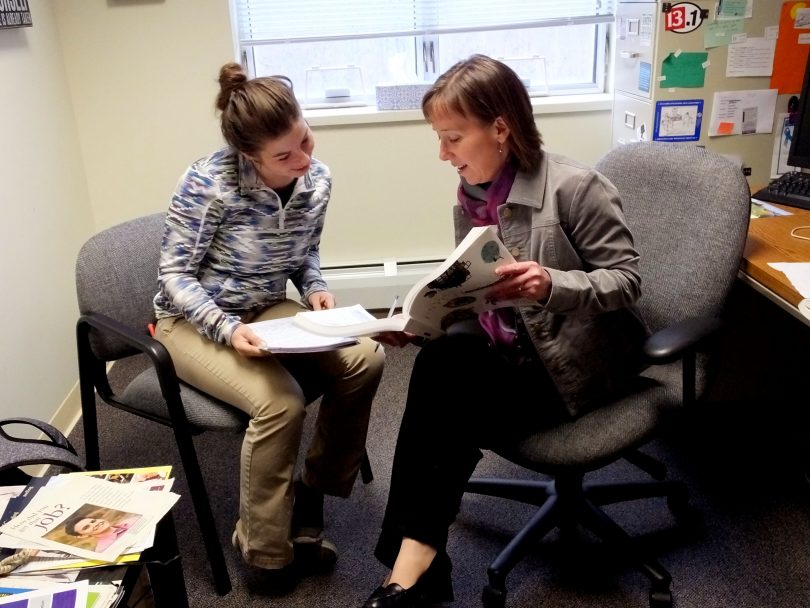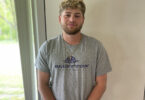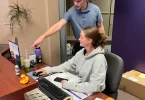By Kera Engle
Just weeks ago, Bluffton University students found themselves walking through the doors of Centennial Hall to start another semester of classes. Now the end of the semester is approaching, and they will soon face with what is usually their biggest grade of the term – final exams.
As the end of the semester draws near, Bluffton students are now filled with the knowledge that their professors want them to know. They are wrapping up projects and putting finishing touches on term papers – trying to get those extra points to boost their grade. Although these marks make all the difference, the score some students tend to focus on the most is their final exam grade.
Beginning to prepare for the variety of tests these students will take, they develop methods of studying that best suit them.
“In my four years at Bluffton, I found that having my friends quiz me works more in my favor,” said senior Jack Fisher.
Strategies from flashcards to pure memorization of facts, students do whatever it takes to get the grade.
For students enrolled in Deanna Barthlow-Potkanowicz’s Introduction to Psychology class, they learned about some of the different study strategies that have been clinically proven to be the most effective.
The class talked through these many methods in their last lesson. They broke down the concept of chunking information. This is when one takes the material that they were given and memorizes it in chunks.
Then they were presented with the concept of mnemonics. Mnemonics are any kind of memory aid or trick that helps you memorize information. The most common mnemonic used is an acronym.
Next came the development of hierarchies. These are usually visual outlines of meaningful organization. They are most generally composed of pictures that flow in a specific order and explain a complex concept.
Making personal connections to the content was introduced to the class next. This is a concept that requires the students to take the information they were given and associate it with something in their life that is easy for them to remember.
Finally, they were challenged with the concepts of repeated self-testing and spacing out their study session. Repeated self-testing is a method that goes along with the idea that the more you practice, the easier it is to remember the facts. Spacing out your study session is a practice that allows you to study the information in chunks and memorize it gradually.
Barthlow-Potkanowicz then concluded the lesson by explaining how pulling an all-nighter is not ideal when studying for an exam. A combination of at least six hours of sleep and an effective study session is the most beneficial to doing well on a test, she said.
“To study, I write things down,” said Alissa Hauke. “I write down what I need to know from lessons and highlight all the important facts from my notes. At times when I really get stumped, I’ll free-write about topics and gather my thoughts that way. I also like to categorize things. I found that putting like items together is very helpful when it comes to memorizing information.”
The university also offers a number of services across campus that help students succeed on their exams. The Learning Resource Center, under the direction of Jacqui Slinger, provides support services, such as study sessions led by fellow students, to help students succeed on their final exams. The LRC is located on the third floor of College Hall and is open 8 a.m. to 10 p.m. Mondays through Thursdays and 8 a.m. to 5 p.m. Fridays.







